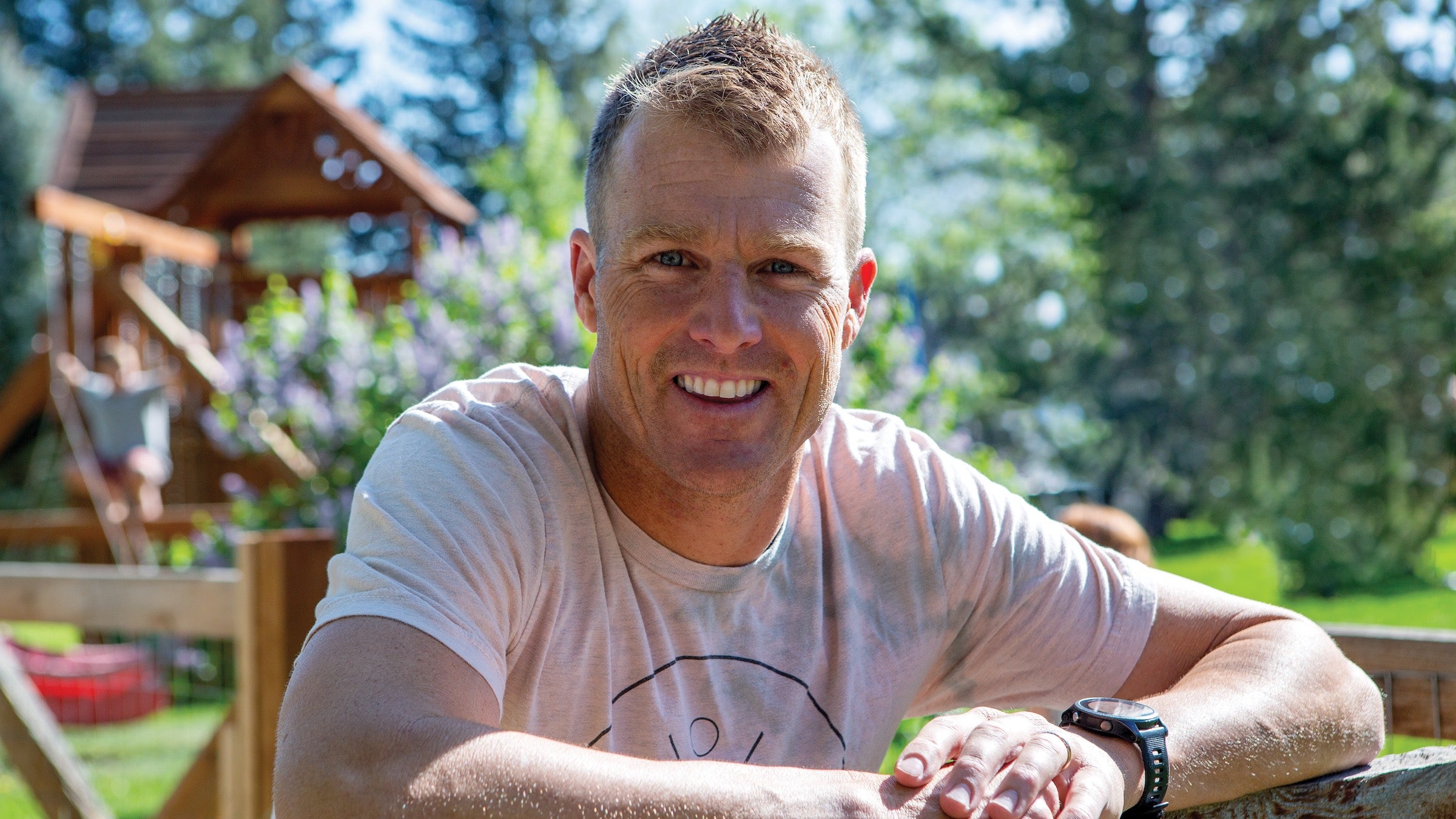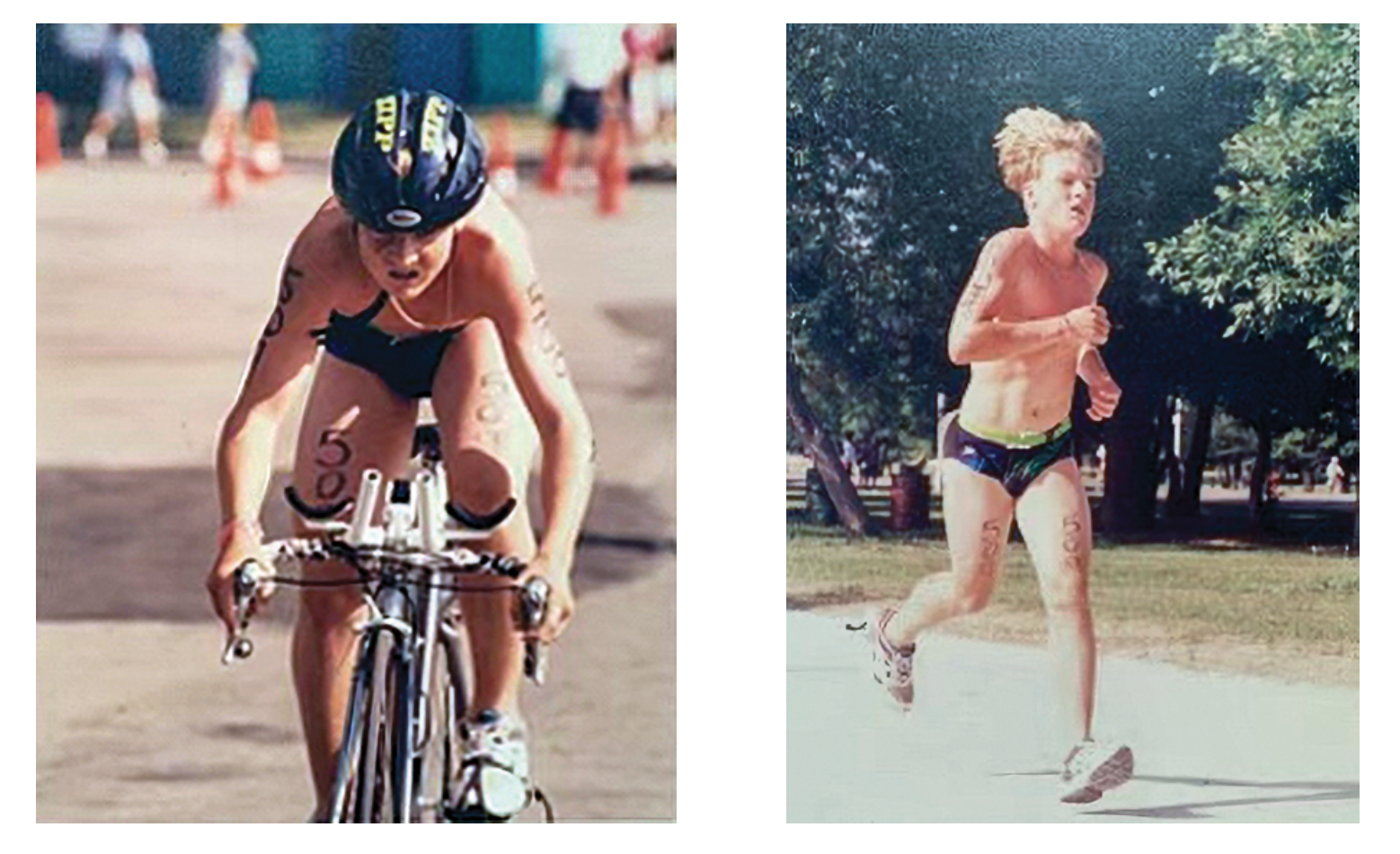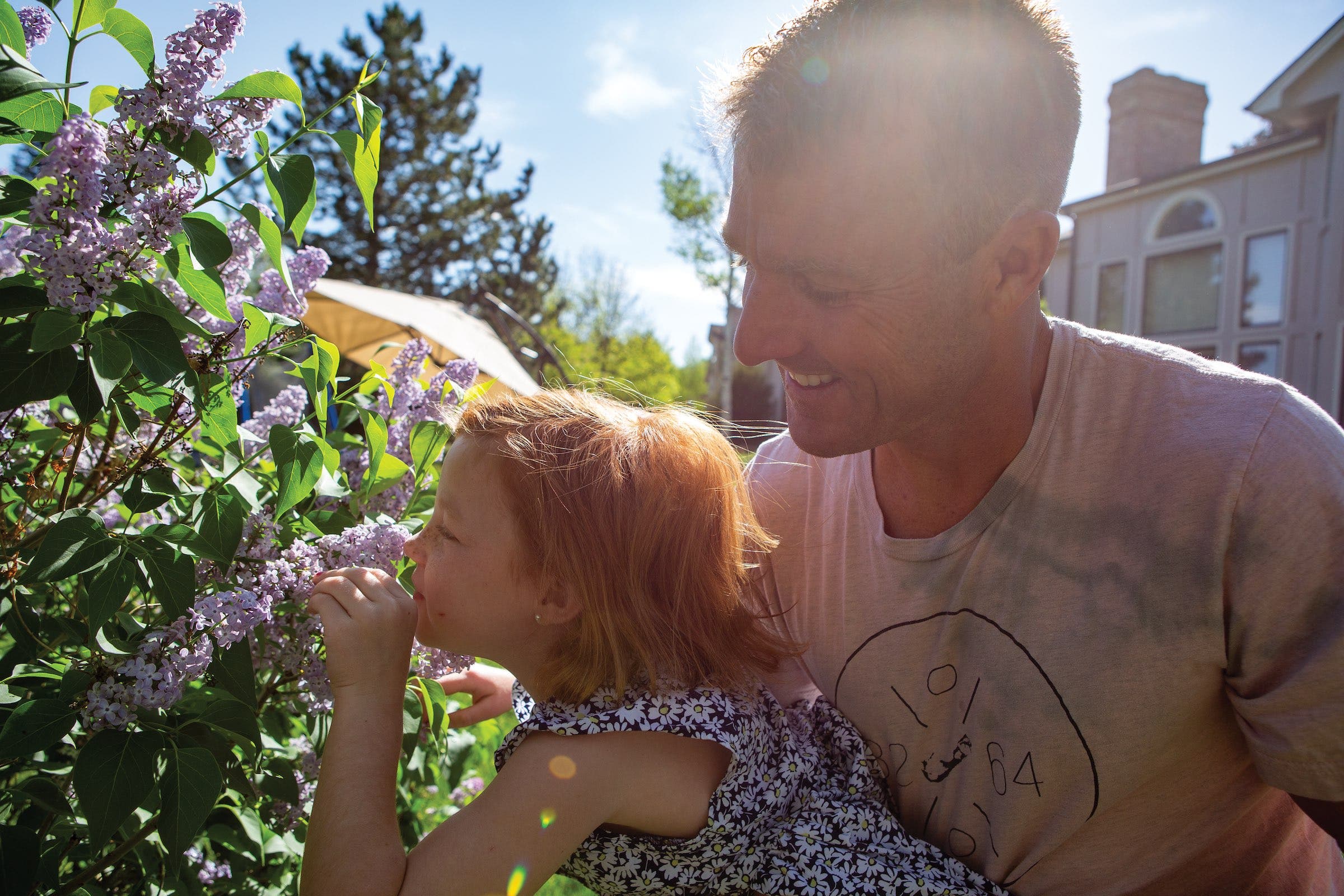Tyler Butterfield Didn’t Win Often (But That’s OK With Him)

Tyler Butterfield at his home in Boulder. (Photo: Brad Kaminski)
If you are a fan of triathlon, odds are you’re already familiar with Bermudian Tyler Butterfield. With a racing resume that includes the Olympics and world championship success, coupled with a charismatic personality, he’s one of the more popular professional triathletes on the circuit. Given the notoriety, you might be surprised to learn that Butterfield’s career accolades include only a handful of victories. That’s a statistic that not only doesn’t bother him, but is a sneaky point of pride—because tallying up victories was never the goal.
Growing up in Bermuda with a total population of about 65,000 people, Butterfield was exposed to the sport of triathlon at a young age. With limited geography, an ideal climate, and minimal population, triathlon was a natural fit. Life in Bermuda as a child simply meant swimming, biking, and running. “You run with the runners, you swim with the swim squad, and you bike with the cycling association,” explained Butterfield of his childhood. That might be part of why the tiny island has produced a number of excellent triathletes.

In addition to exposure to multisport, Butterfield also had genetics on his side. His father, Jim, competed as a rower in the 1972 Olympics and then later finished seventh at the 1981 Ironman World Championship. His mom, Debbie, finished fourth at the 1985 Boston Marathon. Despite the natural prowess from his parents, they never put pressure on him to pursue sport beyond the recreational level. Instead, it was the drive to compete against better competition and exposure to top athletes that opened the door to elite racing.
In 1997, the Butterfields served as a homestay for Australia’s Chris McCormack as he prepared to compete in that year’s Bermuda ITU Triathlon World Cup. The eventual ITU and Ironman world champion took Butterfield under his wing during his trip, allowing him to see the life of a pro triathlete.
“Chris is a charismatic guy, so when you’re a 14-year-old kid and you see this guy laughing and joking and having fun training, it sticks with you,” said Butterfield. “He even let me tag along on some of their training sessions.”
As a junior triathlete, Butterfield was having fun doing triathlons in Bermuda, but the reality was that the competition was limited. “I won the junior national title and there was one other athlete who would push me.”
With a will to test himself and a peek at the pro training lifestyle, Butterfield made the decision as a teenager to move to Australia on his own and train as part of a squad. It was there that he grew as an athlete and started to see what the world of global competition had to offer.
It was perhaps this experience—moving halfway across the world in pursuit of a challenge—that framed the way Butterfield would see his career as a pro. From his teen years on, he’s never pursued the easy victory. Instead, he’s chosen to travel to the toughest races and test himself against the best.
“Whether the outcome is good or bad, competing against the best tells you where you really are,” explained Butterfield. “You can go have a good day at smaller races, but it doesn’t tell you how good you are in the world.”
Though this philosophy has seen Butterfield win “maybe five or six times” total as a pro triathlete, his resume includes a list of experiences that are paralleled by few endurance athletes. He finished third at the 2002 ITU Junior World Championships, competed in the 2004 Athens and 2012 London Olympics, pivoted to amateur cycling for a while, and then has seen two top-10 finishes (7th in 2013 and 5th in 2015) at the Ironman World Championship.
Now, the last decade of his career has seen Butterfield balance that drive to compete and test himself with the responsibilities that come with being a dad to four young kids. For him and wife Nikki (also a former pro triathlete) the transition to parenthood has pushed triathlon and training from the forefront to the background as the needs of Savana (11), Walker (8), Grace (5), and Fletcher (2) take center stage. Never afraid of a challenge, the Butterfields even lived on a hobby farm outside Boulder, Colorado with animals (they’ve since moved off of the farm and run it from a distance).

“Working on a farm reiterated that you have to just get on with it,” said Butterfield of the lessons he learned during that time. “You don’t have to feel good, you don’t have to always do a good job, but it just has to get done. It was a great core workout and a lot of my great races came off of when I was doing that as well.”
Now 39, Butterfield had planned to retire at the end of the 2020 season following the Ironman World Championship. Refusing to let the pandemic be the reason he walked away for good, he has patiently waited for racing to resume so he could give himself a proper sendoff. Though finishing in Kona was the dream, his qualification rolled to the 2021 Ironman World Championship in St. George. He admits the climate and topography of the course were not suited to his strengths and he had a disappointing day. Now he’ll bow out doing what he loves most—representing Bermuda.
Butterfield hopes to finish out his career as part of Bermuda’s mixed relay team at the 2022 Commonwealth Games. Fielding a team of four isn’t always easy for a small country like Bermuda, so he may be forced to race in the individual triathlon. Regardless, he sees it as his final big event as a professional athlete.
While he hates to use the word retirement, he says it’s time to move on. “It’s time for my kids to be the number one priority,” he said. “I’ve had a great run and I’ve had so much fun.”
As for what’s next? He’s not sure, but as he puts it: “At a certain point a new door isn’t going to open if I never close the old doors.”
Tyler’s Tips For Up-And-Coming Triathletes
1. Find What Motivates You
“Everyone has to find their own path and own motivation,” Butterfield said. “There’s nothing wrong with wanting to win. There are a lot of people who do and they do win because they prioritize it. I put enjoyment over winning. It’s what made me get up in the morning and train.”
2. Seek Out a Group
Butterfield credits group training environments for his success—and enjoyment—in the sport.
“When you’re around other people who are like-minded and driving like you, it creates and breeds a good environment for success.”
3. Be Disciplined—And Consistent
While finding motivation and enjoying the sport are important, none of it matters if you can’t put together a string of solid training days. He’s seen too many athletes overtrain and get injured. “It takes a confident coach and athlete to hold back and progress at a rate that is sustainable over the long term,” said Butterfield.
Get to know more of your favorite pros, including Alex Yee, Jess Learmonth, Gustav Iden, Paula Findlay and more.